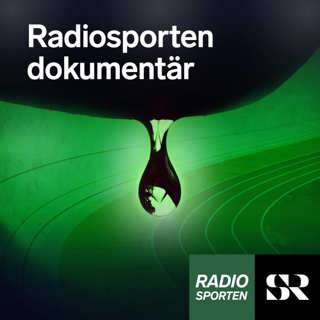
The populist curtain: Poland and Hungary
Political scientist Yascha Mounk travels from Szczecin in the Baltic to Trieste in the Adriatic, the route of the former "Iron Curtain" and finds out what is changing under the new populist governments that been elected. He begins in the north in the Polish city of Szczecin (Stettin) – where Solidarity was originally created. Today the PIS party governs the country, with its appeal to traditional religious values and social conservatism. Critics say it is attacking independent institutions, especially the judiciary. He then heads on to Sopron, Hungary. Here Victor Orban’s Fidesz party is accused of attacking civil society and the freedom of the press in his pursuit of an “illiberal democracy” – but there are forces fighting back locally.
1 Maj 201927min

Dark fibres and the frozen north
If data is the new oil, are data centres the new oil rigs? Far into the north of Norway are some of the biggest data centres in the world. As a more internet enabled future, with AI and the internet of things, becomes reality – data more than ever needs a physical home. Inside a former mineral mine lies a huge data mine, next to a deep fjord, and the data is pinged back and forth across the globe. But the Sami, the traditional people of the region, have found traditional lands in some parts spoiled by huge hydroelectric dams.
30 Apr 201926min

Flat 113 at Grenfell Tower
On 14 June 2017, a fire broke out in the 24-storey Grenfell Tower block of flats in West London; it caused 72 deaths and more than 70 others were injured and 223 people escaped. On the fourteenth floor of Grenfell Tower, firefighters moved eight residents into one flat – 113. Only four would survive. Piecing together evidence from phase one of the Grenfell Tower Public Inquiry, Katie Razzell tries to understand what went wrong that night in flat 113.
28 Apr 201950min

Bangladesh versus Yaba
Thousands of Bangladeshi addicts are hooked on Yaba - a mix of methamphetamine and caffeine. It's a powerful drug that gives big bangs for small bucks. The Yaba epidemic has ripped through the population of Bangladesh, urban and rural, poor, middle-class and rich. This is a drug that's manufactured in industrial quantities in the jungles of neighbouring Myanmar. As the economy of Bangladesh has boomed, drug lords have worked to create new markets for their product. And the Rohingya crisis - when nearly a million fled Myanmar for Bangladesh - has created further opportunities for the traffickers, as desperate refugees have been employed as drug mules. The Bangladeshi Prime Minister, Sheikh Hasina, declared a 'war on drugs' last May. Thousands have been arrested. But critics see a disturbing trend - hundreds of suspected Yaba dealers have been killed by law enforcement. Presenter / producer: Linda Pressly with Morshed Ali Khan (Image: Yaba pills being held by a drug-user. Credit: Ye Aung THU / AFP)
25 Apr 201927min

America's friends
From a US president who is turning the world upside down – with a relish for dismantling global agreements – the message is clear: it’s America first. But where does that leave old European allies? Few expect the transatlantic relationship to go back to where it was before Trump. Europe, says Angela Merkel, now has to shape its own destiny. James Naughtie explores the uncertain future for America's friends.
24 Apr 201927min

South Africa's Born Frees at 25
There's a generation in South Africa who are known as the Born Frees. They were born in 1994, the year of the elections in which black citizens were allowed to vote for the first time. The Born Frees are 25 years old now – graduating from universities, getting established in their careers, or still living in enduring poverty, which has reduced since 1994 but is still profound. The government estimates that 13 million South Africans still live in what they call 'extreme poverty.' This is a major disappointment to many who queued for hours to vote in the 1994 election which brought Nelson Mandela to power. Despite spending twenty-seven years in an Apartheid gaol, Mandela was dedicated to creating a 'rainbow nation', with dignity and opportunity for everyone, regardless of race. BBC correspondent Hugh Sykes has visited South Africa regularly since 1994, and in this programme he tells us about the politics of the country, education, corruption and poverty.
23 Apr 201927min

10, 9, 8, 7
Taking place over just eight months, four perilous and eventful space missions laid the foundations for a successful Moon landing. Each pushed the boundaries of technology and revealed new insights into our own planet. As we count down to the 50th anniversary of the Apollo 11 Moon landing, astronaut Nicole Stott tells the story of the build-up to mankind’s giant leap.
21 Apr 201949min

Restoring Brazil's National Treasure
Brazilians wept when their 200-year-old National Museum went up in flames last September. Twenty million items, many of them irreplaceable, were thought to have been reduced to ash when it was gutted by a massive fire. Staff said the loss to science and history was incalculable - and the tragedy, possibly caused by faulty wiring in the long-underfunded institution, led to much national heart-searching about the country's commitment to its heritage. The museum, housed in Brazil's former Imperial Palace in Rio de Janeiro, held unique collections of fossils, animal specimens, indigenous artefacts, as well as Egyptian and Greek treasures - and the oldest human skull found in the Americas. Some scientists, who saw their entire life's work go up in flames, were in despair - but others vowed to work to rebuild and restock the museum. Now, months on, painstaking archaeological work in the debris has uncovered items that can be restored, while other specialists are setting out on expeditions to acquire new specimens. Tim Whewell reports from Rio on the agonies - and occasional small triumphs - of the slow, exhausting effort to bring a great national institution back to life. (Image: A Brazilian firefighter attempts to extinguish flames during a fire at the National Museum of Brazil, Rio de Janeiro, Sept 2018. Credit: Getty Images)
18 Apr 201926min





















